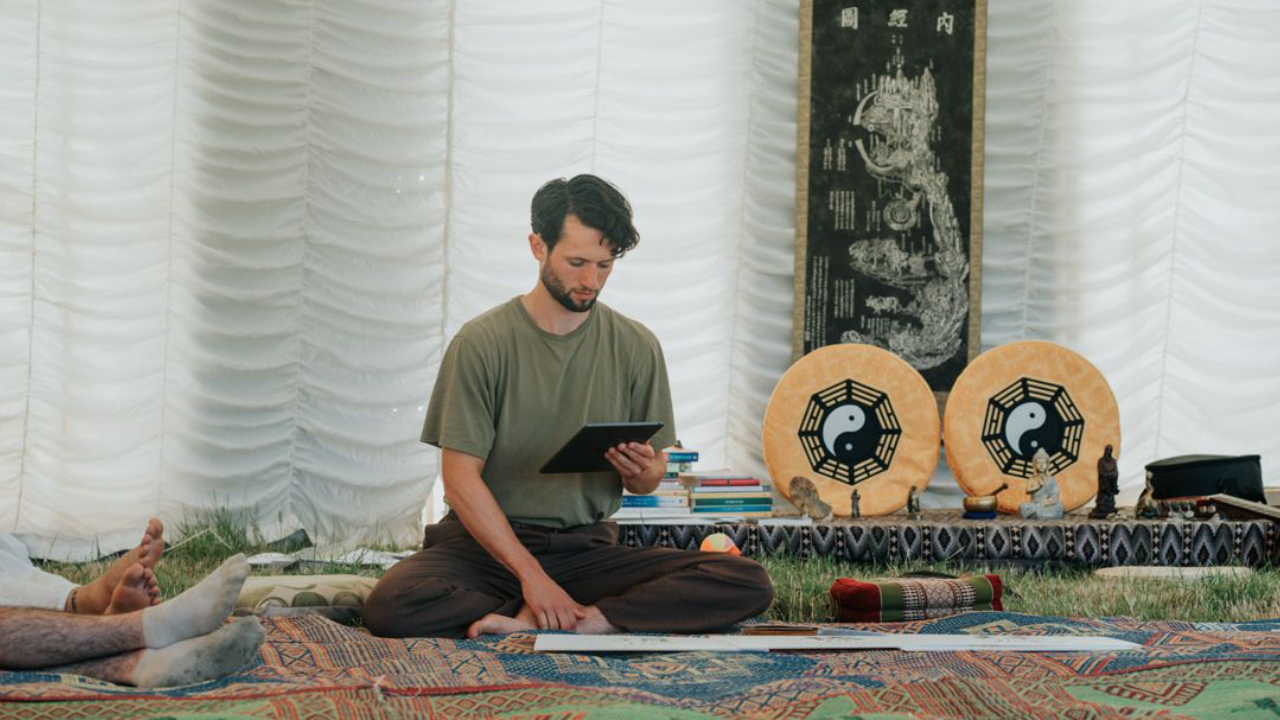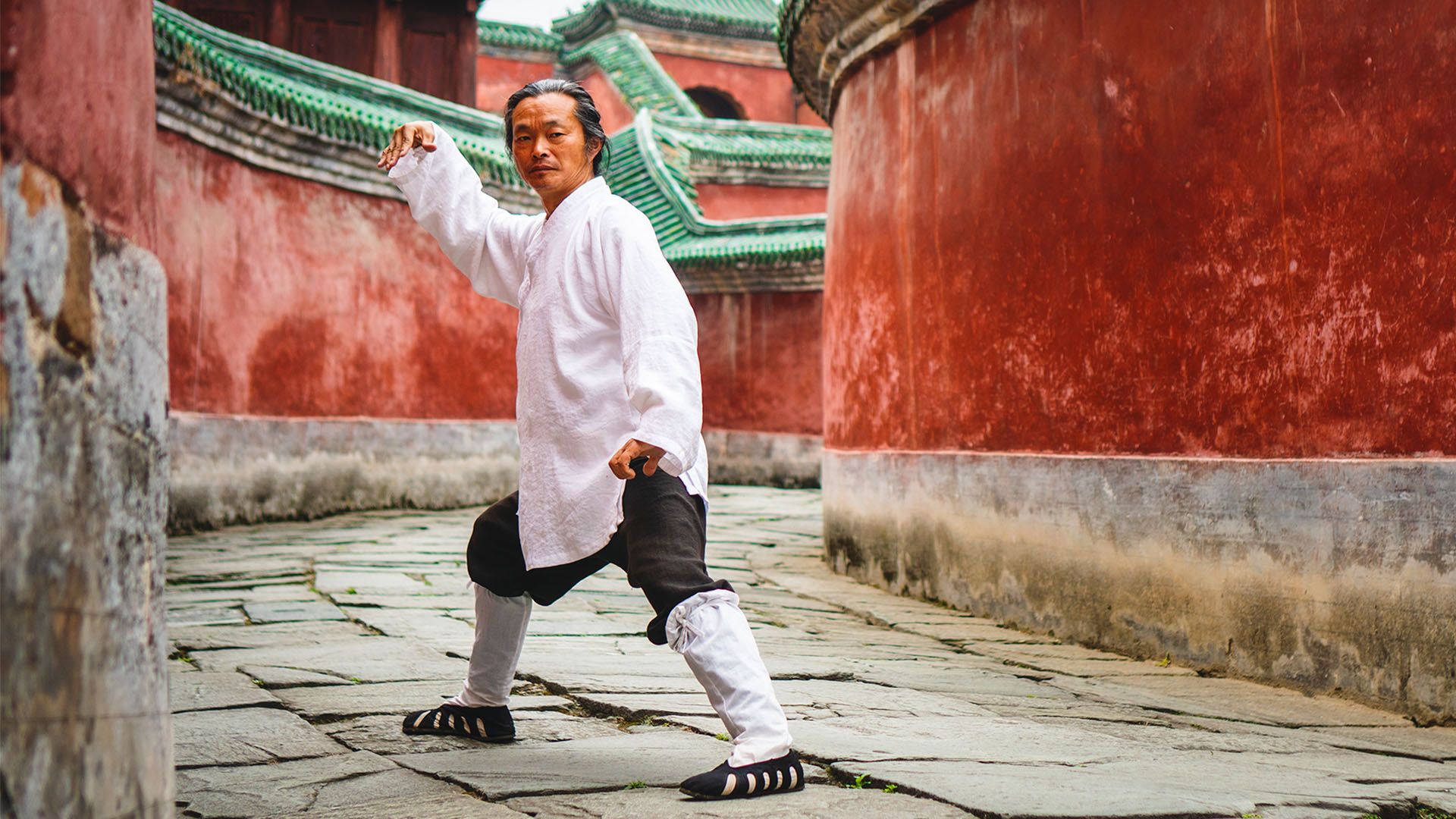The 5 Best Yoga Alternatives
Apr 13, 2024
Are you searching for a fitness routine that differs from traditional yoga? Many find yoga challenging due to physical limitations or personal preferences. Research highlights a rising interest in alternative practices that still foster physical and mental wellness. This article explores five excellent alternatives that maintain the essence of yoga's benefits (Pilates, Tai Chi, Qigong, Ballet, and Cold Water Swimming).
Each offers unique advantages, ranging from enhancing flexibility and strength to reducing stress and improving overall health. Dive into our comprehensive guide to discover which practice resonates with your wellness goals.
Expanding Your Wellness Routine
If traditional forms of yoga don't resonate with you, consider Tai Chi, a martial art rooted in Chinese culture that offers a blend of gentle physical exercises and mindfulness that enhance mental clarity and physical stamina.
Qigong, similar to Tai Chi, involves rhythmic movements, focused breathing techniques, and cultivated qi (vital energy), promoting overall wellness.
Pilates, developed by Joseph Pilates, emphasizes posture and muscle strength through controlled movements.
Ballet, more than a dance form, serves as a rigorous exercise program that strengthens the body and increases flexibility.
Cold-water swimming, an increasingly popular form of exercise, invigorates the body and boosts mental fortitude.
Explore these options to find the best fit for your wellness journey.
1. Tai Chi: The Gentle Martial Art
What is Tai Chi?
Tai Chi, an ancient Chinese practice, blends meditation with slow, deliberate movements, breathing techniques, and a focused mental presence. Often seen as a form of physical meditation, this gentle exercise strengthens the body while promoting internal tranquility and increased flexibility. Rooted in traditional Chinese medicine, it supports holistic health by engaging every muscle group, enhancing balance and coordination.
Are you ready to take the next step? Join the renowned Tai Chi course offered by Wudang Taoist Wellness Academy, expertly guided by Master Gu. Elevate your physical and spiritual journey today. Get started now!
Tai Chi for Mind and Body Harmony:
The benefits of practicing Tai Chi extend deeply into both physical and mental health, making it a comprehensive form of exercise:
- Improves Strength and Flexibility: Regular practice of Tai Chi helps to strengthen the muscles and improve the range of motion. This is particularly beneficial for back and upper body strength, aiding in overall muscle tone and joint health.
- Enhances Mental Health: Tai Chi is known to reduce stress levels and anxiety, fostering a state of mental calmness. The focus on breathing and meditation helps clear the mind, which is essential for mental and emotional well-being.
- Low-Impact Nature: Being a low-impact exercise, Tai Chi is accessible to people of all ages and physical conditions, including those recovering from injuries or managing chronic medical conditions.
- Promotes Cardiovascular Health: The movements in Tai Chi improve heart health by gently increasing heart rate, promoting better blood circulation, and reducing blood pressure.
- Supports Spiritual Growth: As a spiritual practice, Tai Chi aids in deepening the connection between mind and body, enhancing the practitioner’s sense of peace and well-being.
- Increases Body Awareness: Engaging in Tai Chi increases proprioception, helping practitioners gain a better understanding of their body’s position and movement in space, which can prevent falls and injuries.
Tai Chi not only strengthens the body and calms the mind but also encourages a harmonious balance between the two, promoting overall wellness and longevity.
2. Qigong: Ancient Practices for Modern Times
Basics of Qigong:
Qigong, rooted in ancient Chinese culture, combines meditative and physical exercises. This practice fosters a harmony between movement and breath control, aiming to balance the body's energy, known as 'Qi'. It is a form of meditation that involves slow, precise movements, enhancing the practitioner's overall wellness. By engaging in Qigong, individuals connect deeply with their body's internal rhythm, promoting both calmness and vitality.
Discover the best yoga alternative with our top-rated Qigong course at Wudang Taoist Wellness Academy, led by Master Gu. Start a transformative journey for mind and body. Enroll today!
Why Practice Qigong?
- Enhanced Physical Health: Qigong targets various muscle groups, aiding in strengthening the body and improving flexibility. This practice can also promote a greater range of motion and assist in muscle recovery.
- Mental Clarity and Stress Reduction: The meditative aspects of Qigong help lower stress levels and foster mental clarity. Regular practice brings peace and wellness to the mind, offering a serene escape from daily stress.
- Spiritual Growth: As a spiritual practice, Qigong allows individuals to deepen their connection with themselves and their surroundings, enhancing personal insight and tranquility.
- Holistic Healing: This exercise is particularly beneficial for those recovering from medical conditions or managing chronic pain, such as back pain. It supports the body in healing and maintaining long-term health.
- Adaptability: Qigong is low-impact and suitable for all ages and fitness levels, making it an accessible form of exercise for strengthening and stretching the body.
Through regular engagement, Qigong practitioners not only strengthen their physical bodies but also improve their mental and spiritual health, receiving comprehensive benefits from this ancient discipline.
3. Pilates: A Core-Focused Alternative
What is Pilates?
Pilates is a form of exercise that strengthens the body, focusing primarily on the core muscles, which include the abdomen, lower back, hips, and thighs. It employs a series of controlled movements and mat exercises to tone and enhance body alignment. This fitness regime is well-suited for those who seek a gentle yet effective workout, emphasizing precision and breath control. Pilates promotes not only physical strength but also mental wellness, making it a comprehensive fitness choice.
Health Benefits:
Pilates offers numerous advantages for both mind and body, which include:
- Improves Flexibility and Strength: Regular practice helps in stretching and strengthening the muscles without adding bulk, leading to improved overall muscle tone and flexibility.
- Enhances Postural Alignment: It teaches body awareness and good posture by aligning the spine and building support in the core muscles.
- Reduces Stress Levels: The focused breathing techniques used in Pilates can lower stress and promote relaxation.
- Aids in Injury Recovery: Often recommended for individuals recovering from back pain, it strengthens the body and helps prevent future injuries.
- Boosts Mental Health: The meditative aspect of maintaining precise control over movement enhances mental focus and clarity.
- Suitable for All Levels: Whether you're a beginner or have advanced fitness levels, Pilates can be tailored to challenge everyone effectively.
Pilates could be seen as “yoga’s more athletic cousin,” focusing not only on improving strength and flexibility but also on developing the body’s overall endurance and well-being. It encourages practitioners to engage every muscle, supporting a greater range of motion and better physical health. If you're considering a low-impact, strengthening and stretching regimen that harmonizes the body and mind, Pilates might be the right choice for you. Always consult your doctor before starting any new exercise program, especially if you have medical conditions.
4. Ballet: Graceful Movements for Physical Fitness
What is Ballet?
Ballet, often perceived as an artful performance, serves equally as a robust exercise regimen. It involves a series of movements that enhance not only grace but also physical strength. Each routine integrates traditional dance poses, which challenge the body across various muscle groups, promoting physical endurance and coordination. This practice not only sculpts the body but also improves overall stamina and flexibility. For those seeking an alternative to traditional gym workouts, ballet offers a dynamic blend of stretching, strengthening, and poise.
Health Benefits:
- Enhances Flexibility and Range of Motion: Regular ballet practice boosts flexibility. It extends the range of motion, which is crucial for mobility.
- Strengthens Major Muscle Groups: Ballet routines work every muscle. They focus on the legs, core, and upper body, enhancing muscle tone and strength.
- Improves Postural Control: Ballet's precision promotes better posture. It strengthens the back and abdominal muscles, which are vital for spinal alignment.
- Reduces Stress Levels: Coupled with deep breathing and focused movements, ballet can significantly lower stress, providing mental clarity and calm.
- Boosts Cardiovascular Health: Although it appears gentle, ballet is an effective cardiovascular workout that can improve heart health over time.
- Supports Mental Health: The meditative aspect of mastering ballet routines can enhance mental well-being, offering a sense of accomplishment and reducing anxiety.
- Promotes Cognitive Function: Learning and executing complex ballet sequences can improve memory, attention, and overall cognitive agility.
5. Cold Water Swimming: A Refreshing Challenge
What is Cold Water Swimming?
Cold water swimming involves immersing oneself in open waters that are typically below 15°C (59°F). This activity attracts a diverse range of enthusiasts, from those seeking a vigorous physical challenge to individuals aiming to enhance their mental resilience. This form of swimming is gaining traction globally as more people pursue activities that refresh both the body and mind effectively.
Surprising Benefits of Cold Water Swimming:
- Boosts Mental Health: Regular cold water immersions can significantly lower stress levels. The cold triggers hormonal responses that are known to reduce anxiety and depression.
- Enhances Circulation: Swimming in cold water stimulates blood flow, helping push blood through all vessels more efficiently, which improves heart health and skin vitality.
- Strengthens Immunity: Research indicates that this activity can enhance immune system function. Participants often experience fewer colds and infections.
- Improves Flexibility and Strength: Engaging in movements against the resistance of water makes muscles work harder, which strengthens them and increases flexibility.
- Pain Management: Immersing in cold water can act as a natural pain reliever by reducing inflammation and numbing nerve endings.
Swimmers often describe the sensation of entering cold water as a shock that quickly transitions to exhilaration. With each plunge, they not only condition their bodies to handle extreme temperatures but also train their minds to remain calm and focused under stress. This unique combination of physical and mental benefits makes cold water swimming a compelling alternative to more traditional forms of exercise.
Conclusion
Using these yoga alternatives could transform your approach to physical fitness and mental tranquility. Each option offers a unique blend of benefits, catering to various needs, from gentle exercises to spiritually enriching practices. As you consider these alternatives for your routine, think about how each can enhance your health and wellness goals. Have you identified which alternative might suit your lifestyle? What are you most excited to try?







